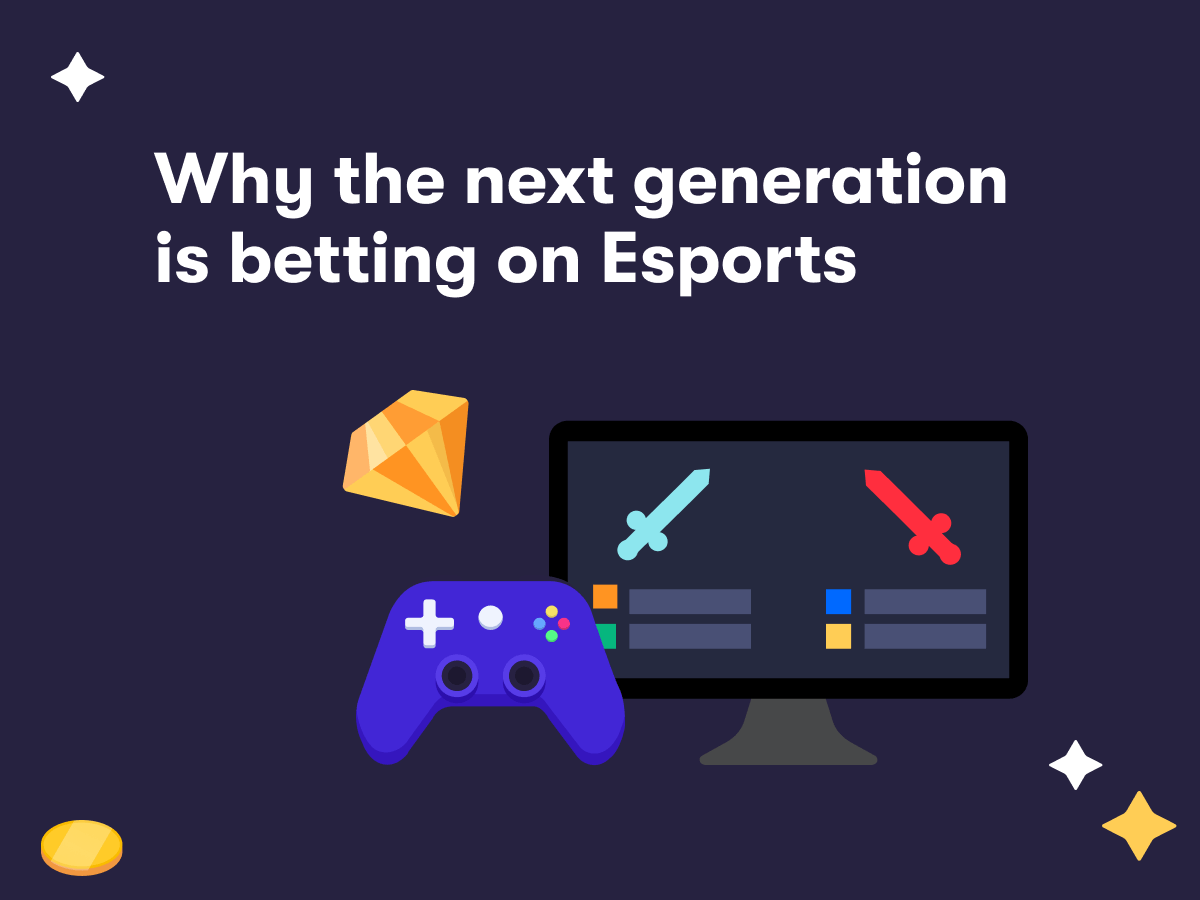The global esports betting market is projected to grow from $11.22 billion in 2024 to $12.66 billion this year, marking nearly a 13% rise. Major esports titles saw a huge year-on-year betting volume increase, with Valorant jumping 175% and CS2 growing by 99%.
So, how did we get here, and how quickly has the rise been?
A primary driving factor was the COVID-19 pandemic. With people forced to stay inside and traditional sports put on hold, people turned to technology even more for entertainment. While esports also couldn’t hold in-person tournaments, it was set up to more quickly adjust to online-only events.
This created a huge increase in esports enthusiasts, with estimations of the number of regular viewers expanding from 215 million in 2020 to 315 million in 2025. The revenue for esports betting reflects this dramatic leap in general interest in the industry.
In 2020, esports betting revenue stood at $1.03 billion, but it has more than doubled in 2024, reaching $2.5 billion. It’s predicted it will hit $3 billion by 2026. In terms of esports betting participation, it’s leapt up from 21.9 million users in 2017 to 74.3 million in 2024.
Most popular esports for betting
Before we break down exactly why Gen Z and Millennials have turned to esports for their betting action, let’s examine the games that are drawing the most attention. Most people know the NFL, what a touchdown is, and who the Dallas Cowboys are. But what about how you win a game in League of Legends?
Counter-Strike 2
One of the grandfathers of esports — and gaming in general — Counter-Strike is a tactical first-person shooter series from Valve, the creators of Steam.
Counter-Strike 2 (CS2) acted as a facelift for Counter-Strike: Global Offensive, replacing its legendary predecessor in 2023 and becoming the leading title for the series in esports.
The first CS2-based esports event was the PGL Major in Copenhagen in March 2024. The shift to CS2 only bolstered its standing among the esports betting elite, as the Perfect World Shanghai Major was the bet-on esports event in Q4 of 2024, pulling in 28% of all bets.
Valorant
CS2 is still the biggest first-person shooter in esports, but it’s facing relatively new competition from Valorant, released by Riot Games, the makers of League of Legends (LoL).
While the other three top esports games are legacy titles that date back decades, Valorant hit the scene in 2020, combining the tactical shooting of CS2 with Overwatch-inspired individual character abilities in five-versus-five games.
It is still significantly behind CS2 and League of Legends in terms of betting interest, but Valorant nearly doubled its market share in 2024, going from 3% of all esports bets to accounting for 5%.
League of Legends
LoL is a pioneer in the gaming industry as it was one of the first to hit big with the free-to-play model following its release in 2009 by Riot Games.
A multiplayer online battle arena (MOBA) in which two teams of five compete to destroy each other’s base, LoL’s esports scene started two years later, and it hasn’t looked back since.
LoL has become synonymous with esports. The LoL World Championship is akin to the Super Bowl, as it was the most-watched esports event of 2024 with 6.9 million peak viewers. It was second to CS2 in 2024, taking 26% of all esports bets, while the World Championship brought in 19% of Q4’s betting volume.
Dota 2
Dota 2 is nearing its 12th birthday, but the MOBA game from Valve remains one of the top players in esports. Its predecessor, Defense of the Ancients, was a community-created mod for Warcraft III: Reign of Chaos and an inspiration for its sequel’s direct rival, LoL.
Dota 2 is considered the more strategic and less accessible of the two MOBA games, and its smaller esports scene reflects that. While it can’t touch LoL’s popularity, Dota 2 saw a 90% year-over-year increase in betting volume, though its annual market share of esports bets fell from 14% to 10%.
Why are young bettors turning to esports?
So we know the numbers behind the increase in esports betting, and we’ve looked at the games fueling that dramatic rise. But what about the reasons why people are connecting with esports instead of traditional sports like previous generations? Let’s break them down.
First-hand knowledge
In 2024, the vast majority of esports bettors (87%) came from the 18–43 age group. This group mixes together digital natives, Gen Zs who have never known a world without the internet, with Millennials who grew up during the boom of home video-game entertainment in the 1990s and early 2000s.
What both of these groups have in common is that they’ve played the games they’re betting on. They know them inside and out. They know the game types, the maps, the arenas, the strategies, the lore, and the metas.
It’s hard for most people to know what playing at the highest level of football or basketball is like, but esports are accessible through their ease of availability. The four games listed above are all free to play. The barrier to entry is so low, especially compared to the cost of watching traditional sports.
This accessibility helps foster a deeper connection with your chosen game’s esport. And because bettors feel like they have more knowledge about the inner workings of the game, it makes wagering on it more natural and appealing.
Community-first experiences
If you delved into the appeal of traditional sports, you’ll trace it back to a feeling of belonging. A connection to something bigger than yourself, whether that be your local team or an athlete you’ve followed throughout their career. That desire for interaction and community is also at the heart of esports, but just tailored for the modern age.
Esports bettors can watch the event they’re betting on alongside millions of other fans on streaming sites like Twitch and YouTube, discussing the game in real-time. There are places like Discord where fellow esports lovers can find community and discuss tournaments, teams, and players.
Moreover, esports stars are far more relatable and attainable. They aren’t otherworldly goliaths like LeBron James. They mirror their fan bases, heightening that sense of community. And with social media and individual streaming accounts, fans have far more access to their favorite players — and again, at drastically smaller costs than a fan wanting to see their favorite athlete play live.
More flexible, faster betting
As highlighted in our deep dive into sports viewership is declining in younger generations, Gen Z is struggling with the rigidity of traditional sports and its betting landscape. Part of the issue is, for example, the slow-paced action of the NFL.
Esports combats these concerns with a far more flexible betting approach that hits with the instant gratification younger generations have become accustomed to with streaming, TikTok, and Instagram.
Instead of waiting for hours or even days to know the outcome of your bet, esports focuses on micro-betting. Bettors are able to wager on the next round, the next play, the next outcome. Take Dota 2, for example; 85% of its total bets wagered in 2024 were live bets, compared to 15% for pre-match bets.
What’s next for esports betting?
As esports betting continues to expand, sportsbooks have to adapt to their new audience and its expectations. They can’t simply expect to add an esports section that operates the same way as traditional sports sections and hope to engage Gen Z and Millennial audiences who want a more immersive experience.








